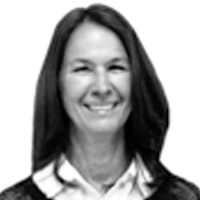Question
Why is early hearing loss detection important, and does this concept only apply to pediatrics?
Answer
The current hearing screening process begins with newborn screening. According to the National Center for Hearing Assessment and Management, every state and territory in the United States has now established an Early Hearing Detection and Intervention (EHDI) program. These programs ensure that every child born with a permanent hearing loss is identified before three months of age and provided with timely and appropriate intervention services before six months of age. Identifying hearing loss at a very early age is important because children with hearing loss often fall behind their peers in speech and language development, cognitive skills and social skills. If the hearing loss isn’t treated these deficits can lead to adult issues such as reduced socio-economic status, poor socialization skills, depression, etc. Obviously, the earlier we can identify hearing loss the sooner we can begin to treat the problem and have better outcomes for that individual.
Early childhood screening is also common as not all hearing loss can be identified at birth. Screening during early childhood or beyond the newborn period is critical because hearing loss is an invisible condition. Between birth and age five, the incidence of hearing loss doubles. Just because a newborn passed their hearing screening at birth, it is not a guarantee that a late onset and/or progressive hearing loss won’t develop. As a result, early childhood programs, such as Early Head Start, require hearing screening with all new enrollments.
When people hear the words “early detection” they think it means screening at a young age, but a hearing loss can occur at any age. It is about detecting the problem at the earliest possible time. The sooner you can detect hearing loss, the better the outcome for the person with the loss. Hearing loss can occur at any age and hearing screening plays a vital role to ensure that patients can avoid communication roadblocks and potentially have a better quality of life.
In 2011, Johns Hopkins and the National Institute on Aging published a study describing a link between hearing loss in seniors and dementia. They cite the need to screen adults periodically so a potential hearing loss can be identified as early as possible, and treatment can begin. The American-Speech-Language-Hearing Association (ASHA) recommends that adults be screened for hearing impairment at least every decade through age 50 and at 3-year intervals thereafter.
In addition, promoting screening to adults as well as children can provide new opportunities for hearing professionals to expand their service offering and generate new revenue streams. But more importantly, early detection means addressing hearing loss before it significantly impacts a person’s quality of life.
This Ask the Expert is an excerpt from an interview on this topic with the Audiology Systems dedicated hearing screening team - read the full interview here.





